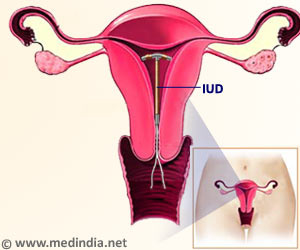Women with endometriosis, a chronic disease characterized by infertility and chronic pelvic pain during intercourse, are predisposed to the condition while as embryo itself.
Scientists from Northwestern University’s Feinberg School of Medicine have found vital clues that may help explain the cause of endometriosis.
Endometriosis is a chronic disease characterized by infertility and chronic pelvic pain during intercourse.The study led by Serdar Bulun, M.D., George H. Gardner Professor of Clinical Gynecology at Northwestern University’s Feinberg School of Medicine, have discovered key epigenetic abnormalities in endometriosis and identified existing chemicals that now help treat it.
These abnormalities result from epigenetic defects that occur very early on during embryonic development and may be the result of early exposure to environmental toxins
One of the abnormalities he discovered is the presence of the enzyme aromatase - which produces estrogen - in endometriosis, the diseased tissue that exists on pelvic organs and mimics the uterine lining.
As a result, women with endometriosis have excessive estrogen in this abnormal tissue found on surfaces of pelvic organs such as the ovaries.
Bulun found the protein SF1 that produces aromatase, which is supposed to be shut down, is active in endometriosis.
Advertisement
Bulun launched clinical trials in testing aromatase inhibitors currently used in breast cancer treatment - for women with endometriosis.
"We came up with a new treatment of choice for post-menopausal women with endometriosis," Bulun said. Moreover, treatment with an aromatase inhibitor is a very good option for premenopausal women with endometriosis not responding to existing treatments, he said.
Another molecular abnormality Bulun found is that women with endometriosis have a progesterone receptor that is inappropriately turned off.
In the absence of appropriate progesterone action, endometriosis tissue remains inflamed and continues to grow.
"This may be a disease that women are born with. Perhaps when a baby girl is born, it has already been determined that she is predisposed to have endometriosis," Bulun said.
"Maybe research can now be directed toward the fetal origins of the disease and raise the awareness of how the disease develops," he added.
Source-ANI
PRI/SK












